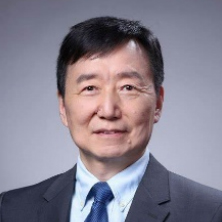
En-Hou Han
Professor
Member of Chinese Academy of Engineering
Institute of Corrosion Science and Technology, China
Biography: Dr. En-Hou Han is a full professor of South China University of Technology (SCUT), President of Institute of Corrosion Science and Technology (ICoST). From 1995-1998 he was a research scientist at Massachusetts Institute of Technology (MIT) and was a professor at the Institute of Materials Research in Shenyang from 1998-2023. Prof. Han has published 600+ peer reviewed scientific papers, 180+ plenary, keynote and invited lecture, and hold 142 patents. His papers were cited more than 28,000 times with H index 84 & G index 122. As co-editor, he has 9 books (including chapters). He received many awards and honors including the Whitney Award from NACE International (2016), Ho-Leung-Ho-Lee Technology Science Award (2012), Ryukiti Hasiguti Foundation Prize (2010), Fellow of NACE International (2008), Fellow of Asia Pacific Academy of Materials (APAM), Member of Chinese Academy of Engineering (2023) etc. Prof. Han has leadership roles in the corrosion and materials communities. He was President of (UN) World Corrosion Organization (WCO), VP of Chinese Society for Corrosion and Protection, VP of Chinese Association of Anti-Corrosion, etc. Currently he is serving for several journals such as Co-Editors of Materials and Corrosion, editorial member of Corrosion Science, Acta Metallurgica Sinica, Chinese Journal of Materials Research etc., serving for several materials’ societies, such as President of Chinese Society for Fatigue, Executive Board Member of Chinese Materials Research Society, Executive Board Member of Chinese Mechanical Engineering Society, Research Committee of NACE International, President of APAM.
Prof. Han’s research interests include (1) Localized corrosion mechanism understanding and characterization, especially the interaction of mechanical and chemical effects, such as corrosion fatigue, stress corrosion cracking and hydrogen embrittlement for various materials in harsh environments; (2) Corrosion prevention techniques such as nanocomposite coatings, plating, inhibitors & cathodic protection; (3) Service lifetime prediction, failure analysis and integrity for engineering structure and components by big data modelling, digital twins & artificial intelligence (AI); (4) R & D of corrosion resistant alloys (including HEAs) in severe industry environment including new energy industries, energy storage and sea water.
Invited Lecture: Corrosion and integrity of buried oil and gas pipelines
Abstract: The pipeline is one of the important transportation methods for oil and gas. Corrosion is the main issue to affect pipeline’s safety and integrity. The buried pipeline not only has both internal corrosion and external corrosion, but also has the various loads including internal pressure, external soil pressure, and possible soil movement etc. The corrosion pit always exist on both internal and external surface, and the stress corrosion cracking may initiate from the pits and affect the integrity of pipelines. Traditional evaluation methods helps but could not predict properly. The lecture proposed the “corrosion/crack equivalent methods”, that is to simplify the pits as a crack and to use fracture mechanics to evaluate the integrity of pipeline. The methods become the China Standard and has been applied in industry. In order to solve the safety and reliability for the hydrogen doped natural gas pipeline, the effect of various parameters was studied. The results show that the hydrogen does increase the SCC sensitivity of pipeline steel.


